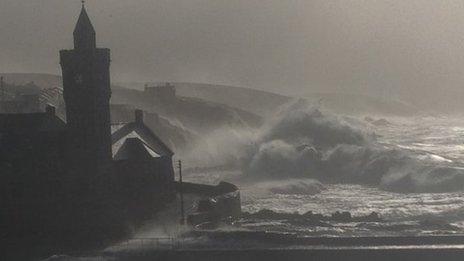Dawlish storm damage rail closure 'to cost millions'
- Published
People fled their homes in Dawlish as the ground beneath them fell away
The storm destruction of the railway line connecting Devon and Cornwall to the rest of the UK will cost the South West economy millions of pounds a day, business leaders have claimed.
Network Rail said the line would take a minimum of six weeks to repair.
In Cornwall, recent storms have caused damage set to cost £14m to repair, the local council has estimated.
The Met Office said southern England had seen "one of the most exceptional periods of rainfall in 248 years".
Mine pump
Records for England and Wales dating back to 1766, show it has been the wettest December to January since 1876/1877 and the second wettest overall.
In Devon and Cornwall fewer than 200 homes are now without power.
An additional pump has been installed at Wheal Jane Mine in West Cornwall to try to maintain safe water levels in the mine workings.
John Delaney from the Coal Authority said water was flowing "incredibly fast" and if they did not keep on top of the situation there was a risk of discharge.
In Kingsand and Cawsand in south-east Cornwall, the high tide overnight caused further damage to the seafront buildings and walls.
The Grade II-listed clock tower in Kingsand has been condemned by the fire service because it is in such a dangerous state as a result of Wednesday's storms.
The tower is at risk of crumbling into the sea and councillors are meeting to decide what action can be taken.
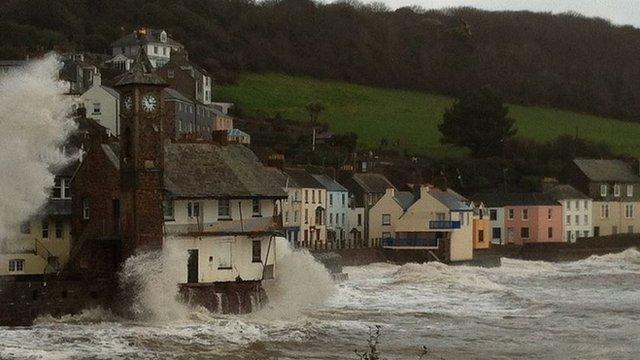
In Kingsand, the clock tower has been left in a "dangerous condition" after being battered by waves
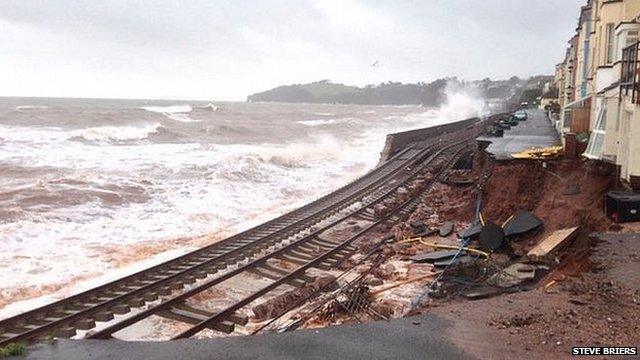
Network Rail said the line, which is hanging in mid-air, would take a minimum of six weeks to repair
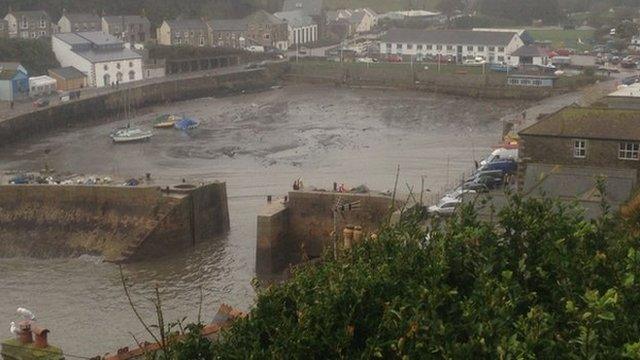
Most boats have been removed from Porthleven Harbour in Cornwall, after several sunk during the storms
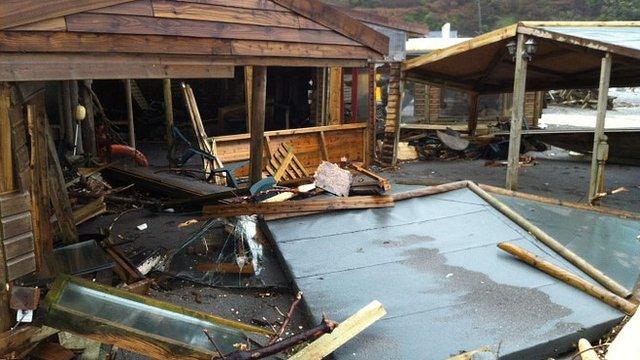
Huge waves battered the Seaton Beach Cafe
'Major blow'
Following the destruction of the main railway line at Dawlish, Network Rail said it was "fully committed to restoring a key main line".
The government has promised a "rigorous review" of alternative rail routes to the South West.
Devon and Cornwall Business Council's Tim Jones said the closure of the line was "hugely damaging" to the region's economy.
"We've done some initial assessments of what it will cost and we estimate it will be between £1m and £2m a day.
Residents are making the most of the calm before the next storm to get the boats out of the harbour
"The amount is based on estimates from last year when Cowley Bridge Junction was closed, disruption to business travellers, the amount lost from taxi companies and businesses around train stations - if you add it all up you come to the estimate we have.
"We've got to live with the problem of the Dawlish sea wall and come up with a financially viable solution."
But David Parlby, from the Plymouth Chamber of Commerce, said: "Financially we think it will cost £20m for each day the line is closed... to have it disconnected is a major blow."
Chris Pomfrett, chairman of the Cornwall and Isles of Scilly Local Enterprise Partnership, said: "I think Dawlish has been an accident waiting to happen.
"This, on top of the problems last year north of Exeter [Cowley Bridge Junction], asks the question: When are we going to take a proper look at our transport infrastructure?
"If we want to get businesses to grow here and improve the economy, you have to have an absolutely resilient transport infrastructure."
'Totally destroyed'
An extra £30m has been pledged for flood repairs and maintenance in addition to the £100m Prime Minister David Cameron announced on Wednesday.
After chairing a meeting of the Cobra emergency committee, he said he had seen "the shocking pictures of the destroyed train line in Dawlish".
Up to 150ft (46m) of railway track was destroyed and Dawlish station was also damaged.
Network Rail's Robin Gisby said: "What we will do in the next 48 hours is protect the line from what we understand will be another big storm over the weekend.
"So our concern at the moment is that the 260ft (80m) wall that's gone is leaving the rest of it exposed.
"We've got a lot of staff just protecting it and then we'll come up with a better assessment of how long it's going to take to rebuild."
The Met Office has issued a yellow and amber warning of rain, external and there is a further risk of gales on Thursday night.
It added: "There have been very few dry days in southern England since 12 December and regional statistics suggest that this is one of, if not the most, exceptional periods of winter rainfall in at least 248 years."
- Published6 February 2014
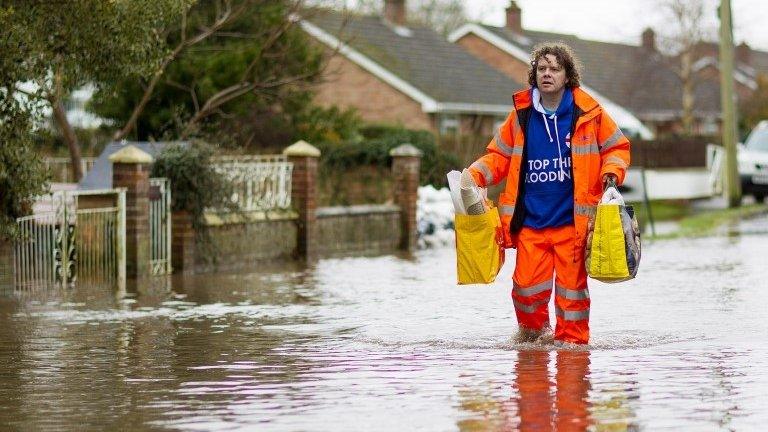
- Published5 February 2014
